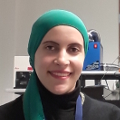INSERM: Core activities within CARAT
The French National Institute of Health and Medical Research (INSERM) will be involved in CARAT via the Cochin Institute, one of its most important research centres. INSERM is a public scientific and technological institute which operates under the joint authority of the French Ministry of Health and French Ministry of Research. The Cochin Institute, founded in 2002, is located on the campus of the Cochin Hospital, one of the most active Hospitals downtown Paris. Its focus is on the study of human pathologies in various domains: cancer, genetics, metabolic diseases, autoimmunity doing basic research as well as translational research particularly in ‘Oncology’. The Institute is organized in three thematic units:
- Endocrinology, metabolism and Diabetes (EMD)
- Development, Reproduction and Cancer (DRC)
- Infection, Immunity and Inflammation (3I)
A major strength of the Cochin Institute is the establishment and regular implementation of state-of-the-art core facilities, committed to provide extensive analysis of biological materials using advanced technologies. The Institute runs 9 individual research facilities, including the ‘Cellular Imaging facility’ which is involved in CARAT.
As Work Package Leader of WP4, INSERM leads the activities with regard to “Monitoring and Mapping technologies”. The group among Emmanuel Donnadieu has developed an innovative approach of tissue slices which, combined with dynamic imaging technology, permits the monitoring of various cells including lymphocytes in fresh tissues. Originally set up in the mouse, this approach was successively transposed to human lung tumours obtained through fruitful collaborations with clinicians from Cochin Hospital.
Our goal in CARAT is to implement and use such techniques to investigate, in a preserved tumor microenvironment, the efficacy of CAR T-cells produced by other members of the CARAT consortium.




Question & Answers from the INSERM Team

I am very excited to be part of this collaborative European research network. By setting up this preclinical monitoring approach, we are at the interface between colleagues who develop innovative CAR T-cells and clinicians ready to launch clinical trials. This gives me the unique opportunity to interact with many partners from academia, the private sector and the clinic.
What is your role in the CARAT team at INSERM?
My role as the leading scientist of Work Package 4 entitled “Pre-clinical monitoring technologies” is to develop an efficient and safe technology platform for CAR T-cell products using EGFR as a targeting moiety. Solid tumours exist in protective microenvironments that help them evade the immune system, making it more difficult for CAR T-cells to reach malignant cells. Our goal is to design innovative strategies capable of rendering CAR T-cells successful in entering tumour islets and killing tumour cells.
How do you see the field of CAR therapy evolving in the future?
For the moment, the field of CAR T-cells faces two important challenges. First, CAR T-cells do not work very well on some of the most common solid cancers, such as tumours of the breast, lung or prostate. Second, CAR T-cells can be very toxic. Scientists around the world, including us in CARAT, are doing hundreds of studies to try to improve the CAR T strategy. Overall, I am very confident that in the near future more efficient and safer CAR T-cells will be available to cure solid cancers.
What motivates you?
I am very excited to be part of this collaborative European research network. By setting up this preclinical monitoring approach, we are at the interface between colleagues who develop innovative CAR T-cells and clinicians ready to launch clinical trials. This gives me the unique opportunity to interact with many partners from academia, the private sector and the clinic.

Cancer immunotherapies including the CAR T strategy are making the headlines these days. This is due to very promising results obtained in a number of malignancies. One of the challenges ahead is to render these therapeutic interventions even more effective as a still large number of cancer patients is refractory to these treatments. This is one of the goals of the CARAT consortium.
Where do you see the role of INSERM’s team within the international CARAT consortium?
Prior to initiating clinical trials, model systems in which CAR T-cells can be characterized and tested for their potency and safety should be in place. So far, most of these assays are based on in vitro cell culture systems that poorly mimic the complexity of the tumor tissue. We are currently using innovative approaches to monitor CAR T-cell function and efficacy in a preserved human tumor environment. Feedback from these analyses enables the other partners to improve their protocols for CAR T-cell manufacture.
What makes working in the CARAT consortium special for you?
Nowadays, important questions cannot be resolved by a handful of individuals but rely on the cooperation of several groups providing their complementary expertise. I am particularly proud to be part of the CARAT consortium and interact with talented colleagues. I am convinced that together we can overcome a number of hurdles and propose new solutions to fight cancer with better and safer CAR T-cells.
In your opinion, what impact does CARAT have? What is special about the project?
Cancer immunotherapies including the CAR T strategy are making the headlines these days. This is due to very promising results obtained in a number of malignancies. One of the challenges ahead is to render these therapeutic interventions even more effective as a still large number of cancer patients is refractory to these treatments. This is one of the goals of the CARAT consortium.

I am very excited to be able to work together with people with great knowledge in immunology and oncology fields and to gather together all the different expertise we have. This will enable us to make CAR T-cells work in solid tumors and create a new strategy to treat cancer patients.
What are your specific tasks in the CARAT team at INSERM?
In CARAT I support Chahrazade Kantari-Mimoun, the lead scientist in this work-package. Specifically, my tasks are to cultivate human CAR T-cells, to process human tumors in order to obtain fresh slices, to perform the microscopy experiments and to analyze them. Under the fluorescent microscopes, I monitor the real-time migration and activities of CAR T-cells within fresh tumors including tumors obtained from cancer patients.
What are “your” major achievements/results?
Over the last months, I set up the slice assay to monitor early activation events (e.g. Calcium response) of CAR T-cells within fresh tumors. I also optimized the slice assay to be able to follow late events such as the death of the tumor cells induced by CAR T-cells.
Our results demonstrate a multi-step process during which CAR T-cells first migrate rapidly in the stroma then make stable contact with tumor cells. Once fully activated, CAR T-cells induce the death of the tumors cells.
What is most exciting about being part of a collaborative international research programme as CARAT?
I am very excited to be able to work together with people with great knowledge in immunology and oncology fields and to gather together all the different expertise we have. This will enable us to make CAR T-cells work in solid tumors and create a new strategy to treat cancer patients.

